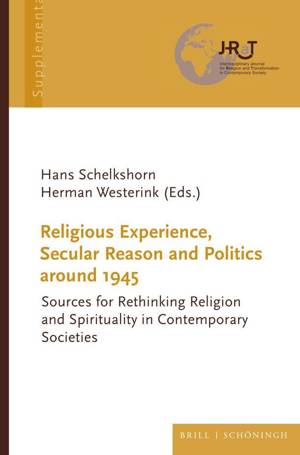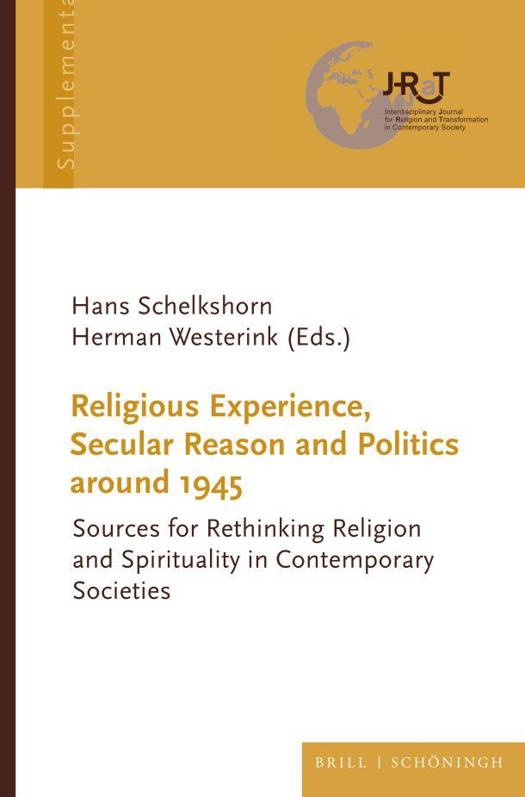
- Afhalen na 1 uur in een winkel met voorraad
- Gratis thuislevering in België vanaf € 30
- Ruim aanbod met 7 miljoen producten
- Afhalen na 1 uur in een winkel met voorraad
- Gratis thuislevering in België vanaf € 30
- Ruim aanbod met 7 miljoen producten
Zoeken
Religious Experience, Secular Reason and Politics Around 1945
Sources for Rethinking Religion and Spirituality in Contemporary Societies
Hardcover | Engels | Journal for Religion and Transformation in Contemporary Society - Supplementa | nr. 3
€ 87,95
+ 175 punten
Omschrijving
The emergence and downfall of fascism and the Nazi regime in the mid-twentieth century mark the definitive decline of Europe's geopolitical hegemony. The end of the Second World War is the beginning of both decolonization processes and the founding of the United Nations as well as the Universal Declaration of Human Rights. In this context, we find a variety of philosophical interpretations on religious traditions, secular conceptualizations of reason and political theories. In and outside of Europe, philosophical and spiritual movements develop different political orientations, whereas fruitful dialogues between religious and secular philosophical positions emerge. In this volume, such positions and interactions are explored in an exemplary way.
Specificaties
Betrokkenen
- Uitgeverij:
Inhoud
- Aantal bladzijden:
- 221
- Taal:
- Engels
- Reeks:
- Reeksnummer:
- nr. 3
Eigenschappen
- Productcode (EAN):
- 9783506794505
- Verschijningsdatum:
- 6/05/2024
- Uitvoering:
- Hardcover
- Formaat:
- Genaaid
- Afmetingen:
- 155 mm x 234 mm
- Gewicht:
- 993 g

Alleen bij Standaard Boekhandel
+ 175 punten op je klantenkaart van Standaard Boekhandel
Beoordelingen
We publiceren alleen reviews die voldoen aan de voorwaarden voor reviews. Bekijk onze voorwaarden voor reviews.










